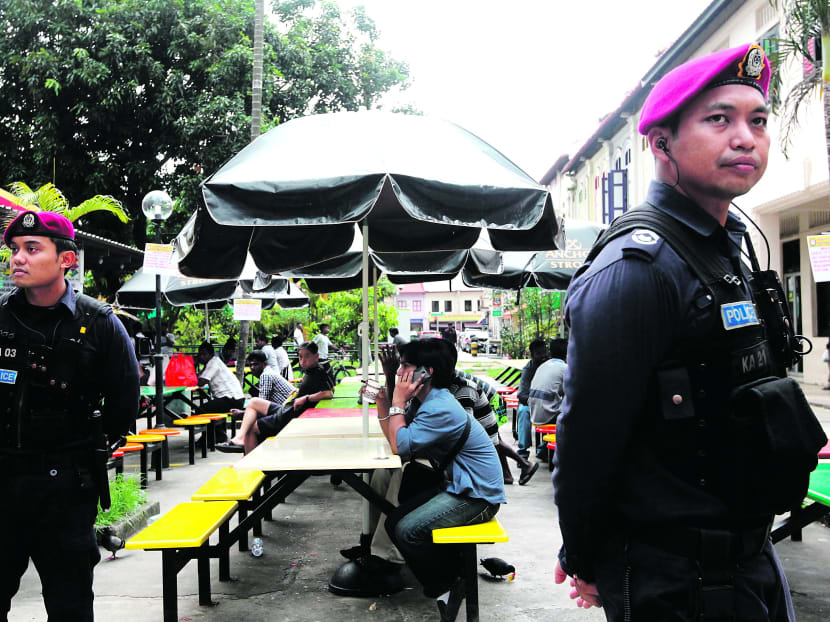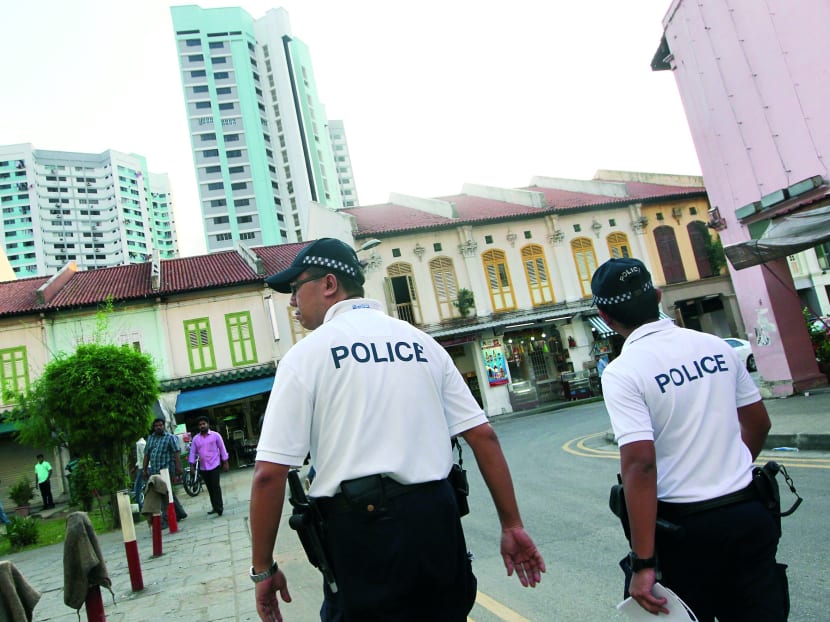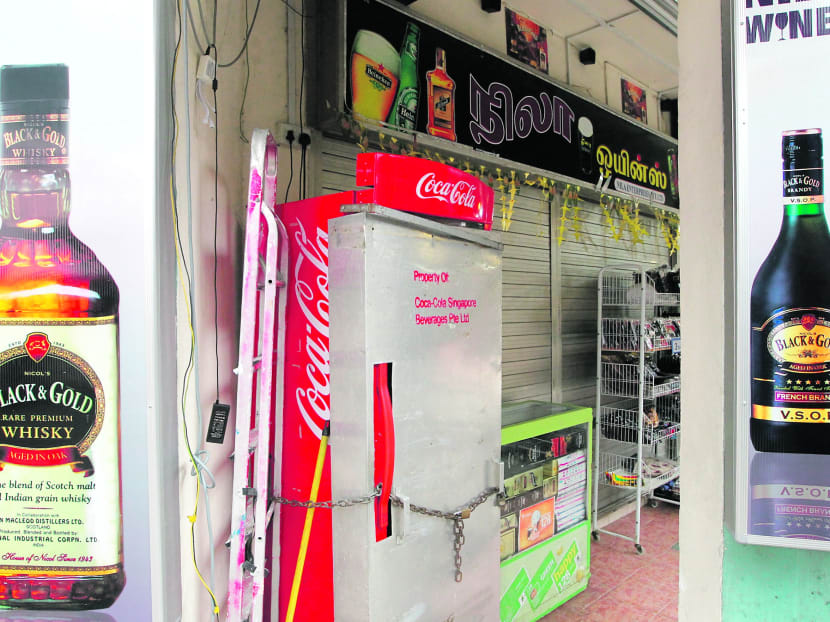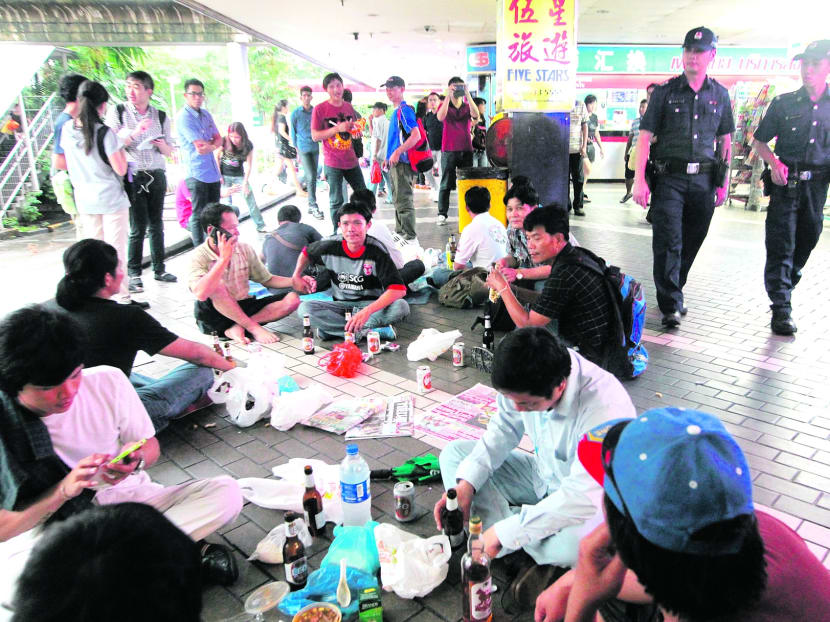All calm in Little India, businesses call for fewer curbs
SINGAPORE — Shop owners in Little India have appealed to the authorities for less severe rules to be imposed in the area, citing how their businesses have been affected after a raft of “cooling-off” measures were introduced to restore order and stability following last weekend’s riots.




SINGAPORE — Shop owners in Little India have appealed to the authorities for less severe rules to be imposed in the area, citing how their businesses have been affected after a raft of “cooling-off” measures were introduced to restore order and stability following last weekend’s riots.
Ahead of interim rules that Prime Minister Lee Hsien Loong on Saturday had said will likely be decided by this week, shopkeepers, residents and politicians proposed several tweaks, in particular to the alcohol ban that has been imposed on Little India.
These include reducing the number of shops issued licences to sell liquor, restricting alcohol sale hours, as well as imposing a curfew for foreign workers.
Others also called for a lifting of the suspension on private buses ferrying foreign workers to the area.
While the police said that, as of 10pm last night, there were no incidents reported in Little India and no breaches of the alcohol ban since the interim measures kicked in at 6am on Saturday, businesses felt the effect of the measures: Crowds thinned by as much as 70 per cent the past weekend, they said.
Ms Irene Yeo, 50, who runs a vintage liquor shop catering to Singaporeans along Chander Road, said she made only S$20 on Saturday, rather than the S$1,000 she usually makes.
“If the ban continues, 80 per cent of the shops here will close down. It is like a ghost town compared to the previous weekends,” she said.
Civil servant Frankie Sim, 48, who lives in the area, said the number of liquor licences should be cut down — 374 establishments have it in the 1.1 sq km area under the alcohol ban. “Too many licences have been given out in recent years, it’s like a free for all. They should also look into prohibiting the sale of cheap liquor,” he said.
MP for Choa Chu Kang GRC, Mr Zaqy Mohamad, echoed the call to review the number of liquor licences and suggested that workers be made to observe a curfew. Ms Denise Phua, an MP for the constituency, suggested that the authorities look into ring-fencing living areas, such as void decks, and restricting the sale and consumption of alcohol in areas such as the ground floors of HDB flats.
While residents said they welcomed the peace, they felt the rules could be relaxed a little.
Ms Maya Korrs, 27, who has lived in Little India for seven years, said the empty streets along Buffalo Road and Race Course Road yesterday were an unusual sight for a weekend night. The area is usually crowded with workers eating and drinking at void decks.
“I have mixed reactions about it being so quiet, actually. While it feels nice to have some peace, the vibrancy we usually have in this area is gone,” she said.
Mr Sim added: “As residents living in the area, we’ve grown to accept them as part of the culture here. We can’t say they are not allowed to come, they just have to respect Singapore laws and have a bit of control when drinking.”
Referring to the suspension on private buses for foreign workers, bank analyst Eric Tan, 30, who frequents Little India, said: “It’s not sustainable to continue the suspension in the long term. They come here quite often to get their grocery supplies so it’s not just them who are affected but the businesses here as well. Who will compensate these people trying to make a living?”
Yesterday, during a visit to the area, Transport Minister Lui Tuck Yew acknowledged that long term measures implemented in the area have to be “cognisant” of business operators. He assured that the measures will be tweaked accordingly, and added that the recommendations by the Committee of Inquiry convened to look into the incident will “also help us reach a more appropriate, steady state”.
Nevertheless, he added that residents have also given him feedback that the “cooling off” measures have made them feel safer. A stronger police presence, less alcohol and congestion as well as enforcement are necessary to meet the long-term goal of making Little India a more conducive place for all, said the minister, who is also an MP in the constituency.
“These are some of the things that we need to do and if we can put them in place together with the lighting and some of the measures on alcohol sale and consumption, I think that will make Little India a better place for all, for residents, tourists, for people who come to visit, even for many of the foreign workers who don’t drink, who prefer it to be much quieter. I think, overall, if we can have that, it will be a much better place for everyone.”






